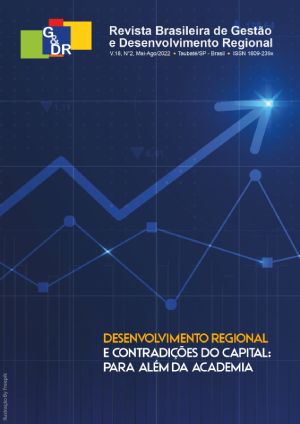TOURISM AS AN ECONOMIC POSSIBILITY FOR THE SUSTAINABLE DEVELOPMENT OF THE QUILOMBOLA COMMUNITY OF FURNAS DOS BAIANOS, AQUIDAUANA, MATO GROSSO DO SUL
DOI:
https://doi.org/10.54399/rbgdr.v18i2.6498Abstract
Tourism as a social phenomenon and economic activity can contribute to sustainable development in traditional communities, in addition to improving their access to public services. The territory occupied by these communities generally offers natural resources that, added to their traditional culture, can make up a unique tourist product. The objective of this research was to analyze tourism as a possibility for local development in the quilombola community of Furnas dos Baianos, in Aquidauana, Mato Grosso do Sul. Specifically, contextualize the tourist activity in the municipal dimension, present the perspective of the community on tourism and identify if there are and which are the enterprises that develop tourist activity in the researched area. The field research was carried out in two phases, with the application of forms in 2018, to collect data that evidenced available tourist resources; and conducting interviews in 2019, to record the community's perspective on tourism and the possibilities for developing the activity in its territory. Although important, only natural resources or traditional culture are not enough for tourism to develop sustainably. At the time of research, tourism did not represent a common interest of the group, in addition to stressing that they are not prepared to work with this activity.
Downloads
Published
How to Cite
Issue
Section
License
Copyright (c) 2022 Revista Brasileira de Gestão e Desenvolvimento Regional

This work is licensed under a Creative Commons Attribution-NonCommercial 4.0 International License.
Authors who have their papers accepted and published in the Brazilian Journal of Regional Management and Development must agree to the copyright policy CC BY https://creativecommons.org/licenses/by/4.0/.
If the article is accepted for publication, the copyright is automatically assigned to the Brazilian Journal of Regional Management and Development.

















